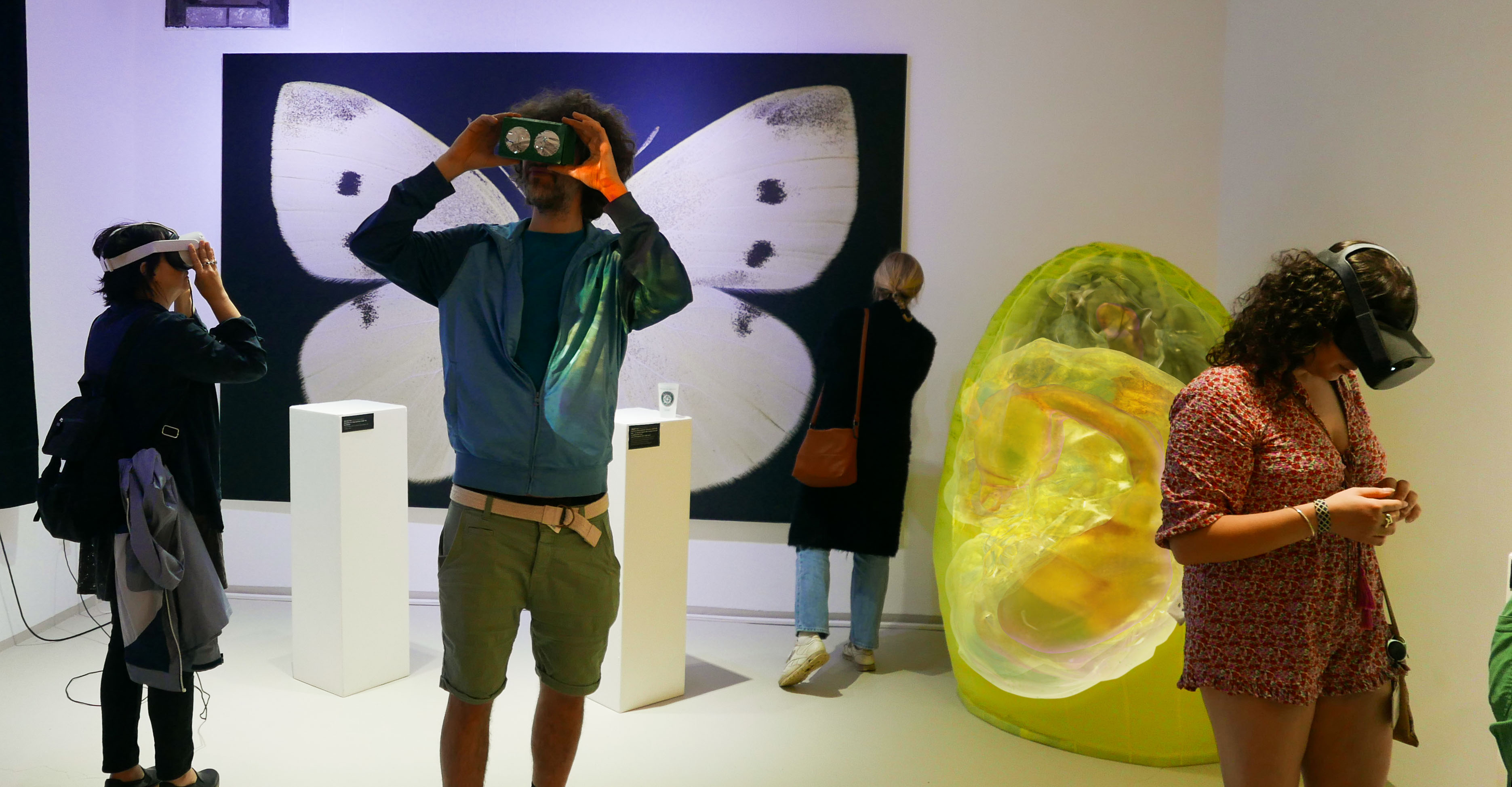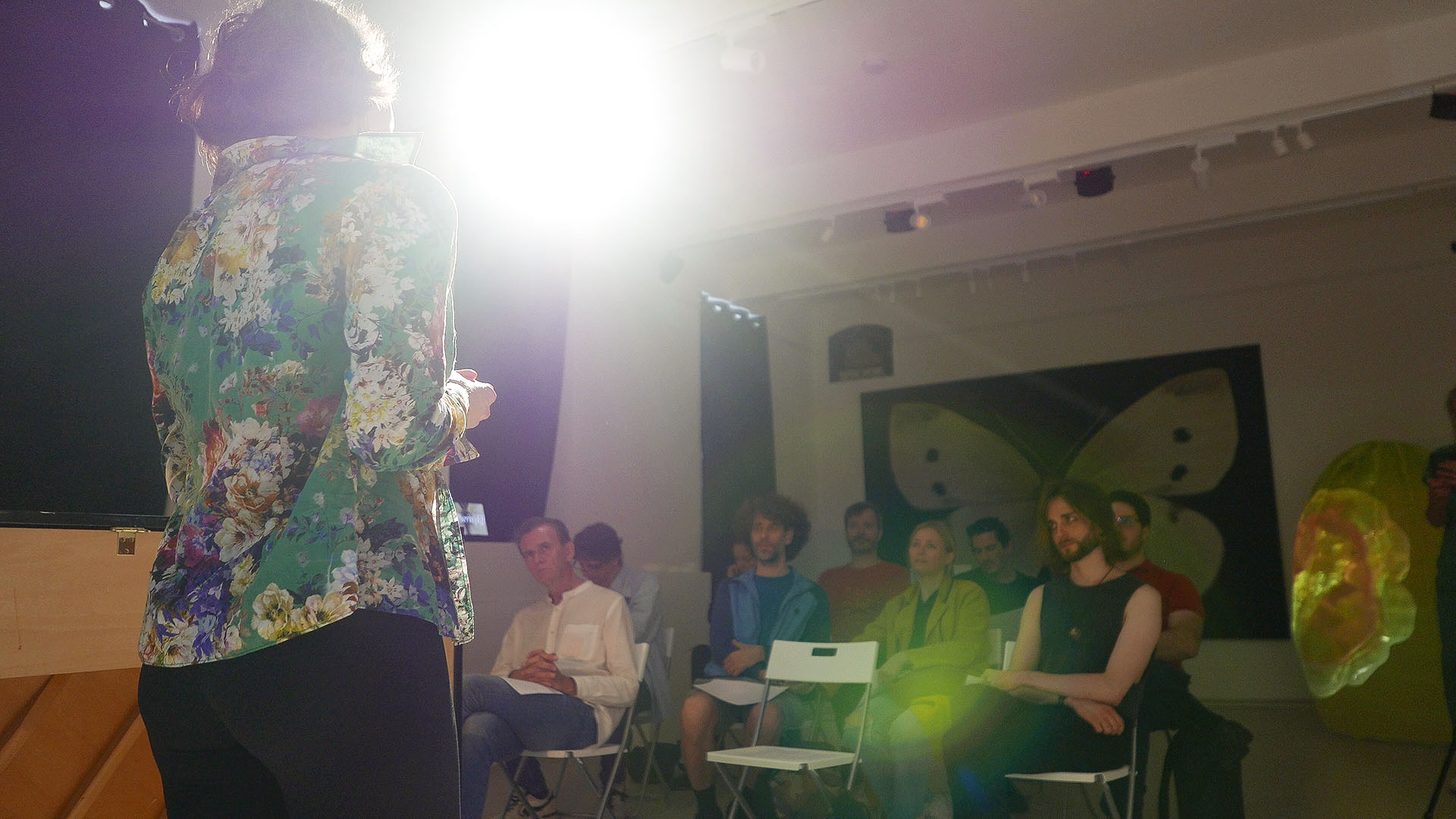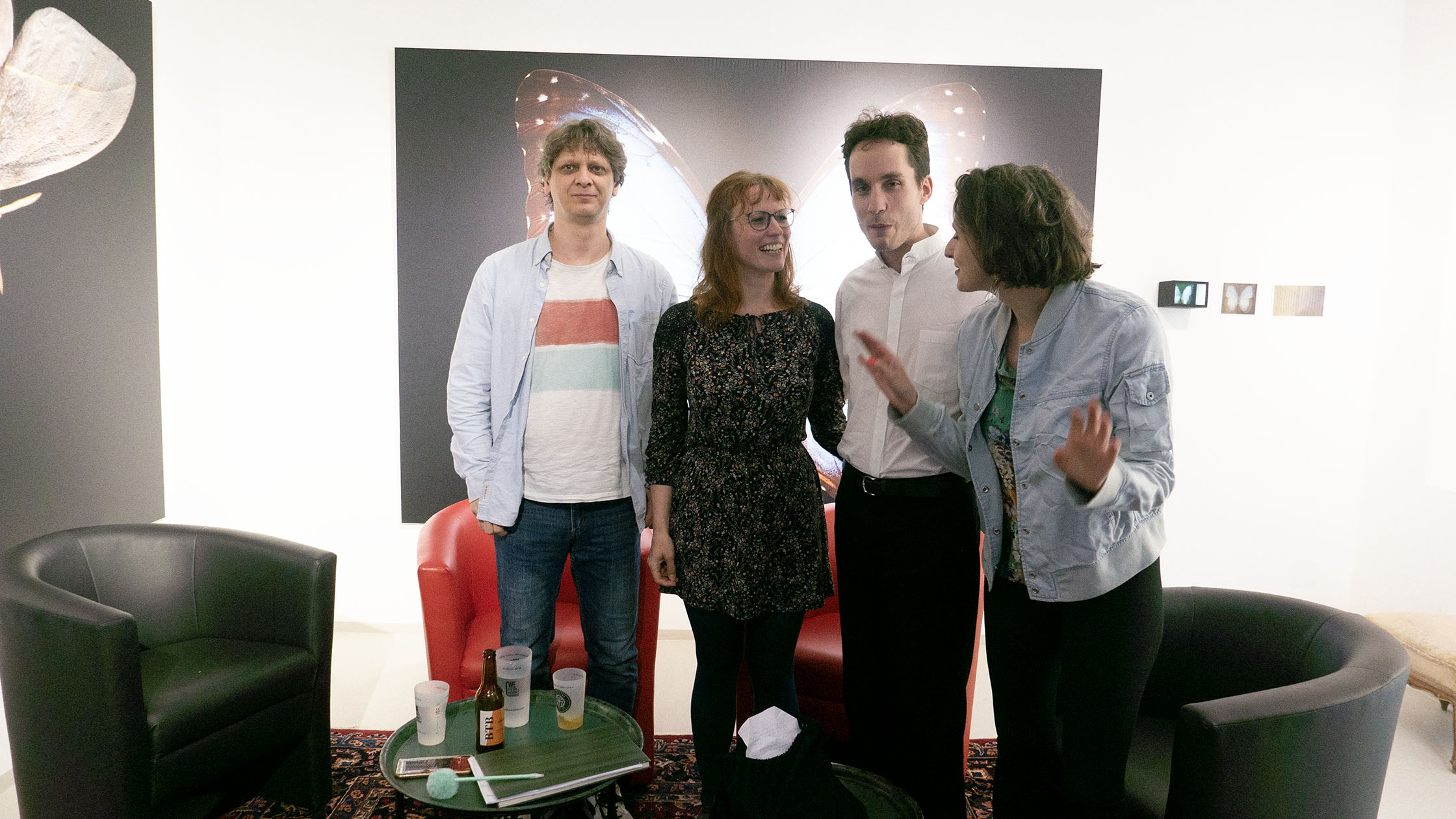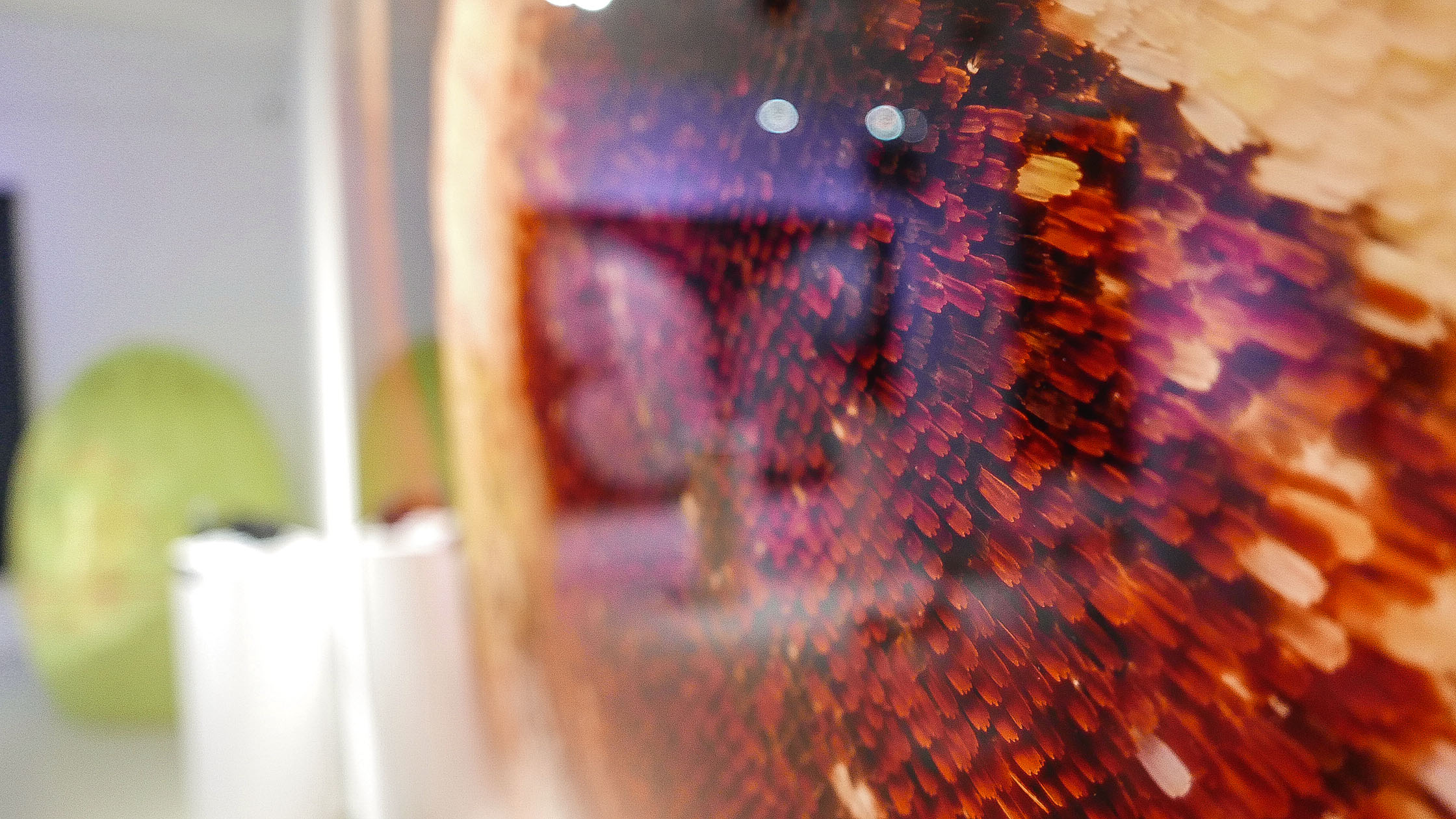Realities of ecosystems on our planet seen through insect eyes and data sets.
The
art-sci project Butterfly}Pieris{Effect aims to increase
awareness of us humans for the importance of other creatures in our
ecosystem. The majority of people have a very anthropocentric world
view. However, it should not be forgotten that human beings cannot
survive without the many other living beings, no matter how small and
seemingly insignificant they may be. The installation presents a soundscape with snippets of expert comments on the topic of ecosystems and butterflies. The model organism for this project
is often seen as a "crop pest" - nevertheless there are no "weeds" or "pests" in a functioning ecosystem. Therefore, we deliberately choose Pieris brassicae the Cabbage White for this project.
Butterfly}Pieris{Effect exhibition, presentation & workshop in Dornbirn
Butterflies in the Science Visualization Lab
In the realm of
modern scientific research, understanding the intricacies of
phenomena that operate beyond the limits of human perception presents
a challenge. The Science Visualization Lab at the University of
Applied Arts in Vienna, Austria, is dedicated to addressing this
challenge through its expertise in rendering invisible scientific
processes visible. Specializing in science visualization, using media
art installations is the latest experiment to present these computer
animations. Therefore, the lab has a unique approach to presenting
complex scientific concepts in accessible and engaging ways. Through
interactive projections, immersive soundscapes, and tactile
interfaces, the lab transforms abstract ideas into tangible
experiences, facilitating comprehension and sparking curiosity. The
potential of media art installations as dynamic tools for bridging
the gap between the unseen realms of science and the tangible world
of human perception are explored. The latest media art installation
Butterfly}Pieris{Effect deals with the importance of insects
for ecosystems and will be part of the symposium exhibition. It is an
installation that combines projection mapping on a human-sized
butterfly egg, an animation of scanned butterfly embryos, three VR
goggles that show the world through the eyes of three developmental
stages of the butterfly, a soundscape with an expert interview about
ecology, a high-resolution scan of a Pieris brassicae
butterfly and video information about the creation process of the
scans for the art installation.
The project is an austrian-british collaboration of Alfred Vendl and Martina Fröschl of the Science Visualization Lab of the University of Applied Arts Vienna, the internationally renown documentary film director Steve Nicholls, Thomas Schwaha of the Zoology department of the University of Vienna, Stephan Handschuh at the VetCore Imaging of the Veterinary University of Vienna, artist Michael Bachhofer and the butterfly expert Arthur Bürger.
Immerse yourself in the world of butterflies!




Immerse yourself in a captivating
journey through
high-resolution scans of butterflies and experience
Butterfly}Pieris{Effect, a thought-provoking media installation
showing computer animations of
microCT scan data (VR, projection mapping) that challenges our
human-centric worldview. Imagine
the fascinating perspectives
of these tiny creatures as you discover the delicate balance between
human existence and the
intricate world of insects,
inspiring a reevaluation of our perspective on the often-overlooked
inhabitants of our ecosystem.
Butterfly}Pieris{Effect was nominated for the Global Digital Art Prize of NTU Singapore. Hence, the project was exhibited
from 25th November 2022 to 27th January 2023 at the nominee exhibition.
In the installation, visitors might try the perspective of the caterpillar's view in contrast to the human gaze. The human view is represented by a huge egg with a projection mapping of a caterpillar in it's egg and the insect view can be experienced in a Virtual Reality video.
Butterflies and Caterpillars where invited to present themselves at the finalist's exhibition and conference!
https://www.ntu.edu.sg/nisth/GDAP2022
Pieris sp. morphes through three developmental stages in a butterfly egg.
Three scanned data sets of butterfly embryos colored, morphed and rendered.
Raw data of microCT scan of bred and hatched Pieris sp. caterpillar.
Starting point of the project were computer-animated scientific visualization shots for the documentary series "Planet Insect" by Steve Nicholls produced for Curiosity Stream. An animation of the "Fly Haltere" - the gyroscopic organ of flies is included in the trailer: https://vimeo.com/727388756/e3a6212cf6.
Residency at the University of Salzburg to develop "Fly... Butterfly".
The basic principle of tomography is largely known because of MRI scans. Nevertheless, it never ceases to amaze recipients that this technique is used in so many scientific investigations in the micro and nano range with similar technical principles.
Such scanned organic entities are not only sampled on the surface, as is done in photogrammetry, but volumetric data are created and these cross-section stacks also provide detailed information from the inside of the specimen. Existing imaging data of hoverflies and butterfly eggs can be worked out by developing the data into larger-than-life representations. The project aims to bring the wonder that our ecosystem and the diverse life on our earth represents to all visitors. Insects make up an important part of our ecosystem, and their population and diversity has declined sharply in recent years. Often only small steps, such as no poison and no or less mowing the lawn, have to be implemented to do something to protect insects. The project aims to create new formats that can expand their impact on society as a whole through an interaction between digital, biological, spiritual and cultural spaces.
© Science Visualization Lab of the University of Applied Arts Vienna, 1010 Vienna, Austria